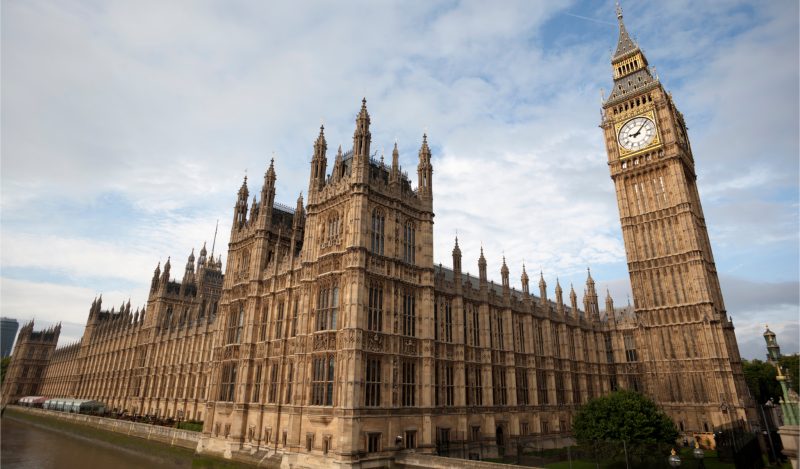The cost of living crisis and runaway inflation are a result of imposing ruinous lockdowns on society, experts have told MPs and Peers.
The comments came in the latest meeting of the the Pandemic Response and Recovery All-Party Parliamentary Group (APPG).
Chaired by the Rt Hon Esther McVey MP, the group heard from experts about the societal consequences of closing businesses and schools, prohibiting healthcare, ordering the public to stay at home and unchecked money printing. One businessman told the group how government COVID-19 policies personally affected him, costing him £120,000, destroying his previously thriving business and leaving him in debt.
Professor of Industrial Economics at the University of Nottingham Business School, David Paton, explained why lockdowns are at the root of the current crisis:
Eye-watering sums of money were spent during lockdowns, on furlough and business support schemes which helped mask the inevitable economic consequences we are now seeing. Many of our current problems could have been avoided had the government carried out an effective cost-benefit analysis of lockdowns and other restrictions.
Quite simply, the lack of spending opportunities during lockdown contributed to a build up of personal and corporate savings. As restrictions eased, people began to spend these savings and, combined with the supply chain issues that built up in the meantime, sustained inflation became the inevitable result. Even worse, having spent about £70 billion, paying healthy people not to work and some £150 billion in total on support measures, the ability of governments to respond to this cost-of-living crisis via either tax cuts or increased benefits is limited due to the hit to public finances caused by lockdown-induced government spending.
Looking at the latest evidence on the observable economic harms, Professor of Health Economics at Nottingham University, Marilyn James said:
The Imperial College March 2020 report which recommended lockdowns knew the “economic effects of the measures which are needed to achieve this policy goal will be profound”. And indeed we have seen inflation rise dramatically in 2022 in part due to the Ukraine war although the trend starts in 2020, which will have largely been due to lockdown policies.
Instead of paying businesses to shut down and people not to work, we needed to keep the economy functioning and direct those billions towards building up capacity in the health system. It is clear lockdown must never again be used as a pandemic mitigation.


Listening to the evidence, Esther McVey MP, said:
We must not deny that two years of intermittent lockdown policies have helped cause the cost of living crisis. The stark wider economic picture and the heartbreaking personal struggle of business owners like Adam Cunningham who had to close his previously thriving business, bring it home. According to the Federation of Small Businesses, half a million small business owners, the backbone of our economy, face the same devastating end.
Our APPG has heard very powerful evidence, but will these credible voices be heard by the official Government COVID-19 Inquiry? Stay-at-home mandates damaged the economy and reduced access to two great levellers in life – education and healthcare. We need guarantees they will not happen again and the government now needs to acknowledge that the cost of living crisis started with lockdowns.
Speaking about his devastating experience, business owner Adam Cunningham said:
I was proud to start up my telecomms business from scratch, with just £300, and was growing it year on year, by 200%. I started to struggle from day one of lockdown. At that point 80% of my business came from hospitality so I lost more than £120,000 revenue over the next twelve months, which for a small business owner is crippling and because my business was young, I did not qualify for any Government financial support packages so had to take out a Bounce Back Loan. I was beginning to build things back up last July, but it was too little too late.
Many of my clients had themselves gone out of business, others still would not commit to decisions. I took a second job and explored every avenue I could to stay afloat, but I had to pay back the loan and in April this year I was left with no choice but to shut my business. We need reassurances that lockdowns will never happen again. The damage has been immense and irreparable. Bankruptcies, people losing their houses, taking their own lives for something that has been proven not to work.
Jonathan Ketcham, healthcare economist and Professor in the W.P Carey School of Business at Arizona State University, gave a global perspective:
The bottom line is that Government policies have fuelled a cost of living crisis and created a pandemic of inequality going far beyond what the macro economic indicators can show. The huge inflation we have been seeing since 2020, leading to the sharp increases in the cost of living globally are not affecting everyone equally. Increased food, fuel, transportation and housing costs hurt those who spend most of their incomes on those essentials, namely the poor and middle class.
Vice-chair Emma Lewell-Buck MP said:
It will come as no surprise to those of us who warned that repeatedly locking down not just our country but the world, would have devastating economic effects on people’s lives and livelihoods.
Lockdowns break our economy and exacerbate inequalities. We need to learn these lessons and never repeat the harmful and, for many, irreversible mistakes of repeatedly locking down every aspect of society. The damage is now very clear to see and will continue to impact for years to come.
Despite the clear harms of lockdown and the absence of any strong evidence of benefit, Boris Johnson has said he would impose another one, and the Labour opposition has shown no sign of resiling from its backing for the policy. It is essential to keep the pressure on, to draw attention to the immense costs and harms of restrictions imposed to no obvious gain, in order to prevent such authoritarian public health policies being established as the norm for future disease outbreaks.
Reprinted from DailySkeptic
Join the conversation:


Published under a Creative Commons Attribution 4.0 International License
For reprints, please set the canonical link back to the original Brownstone Institute Article and Author.









